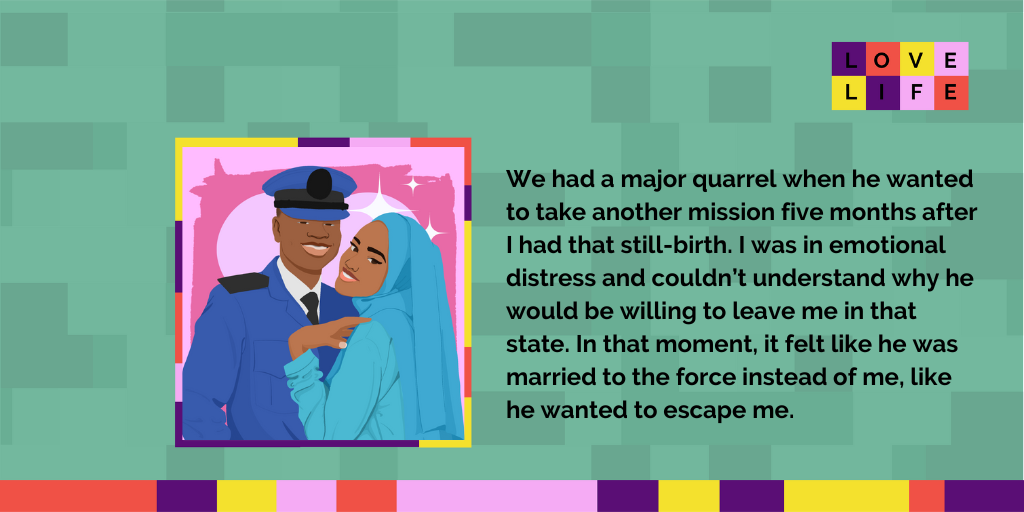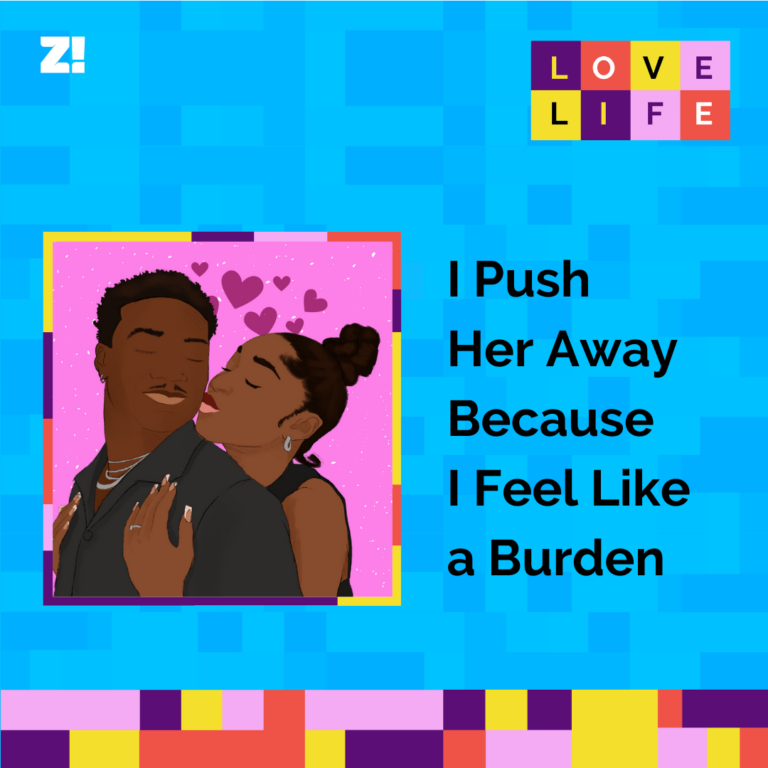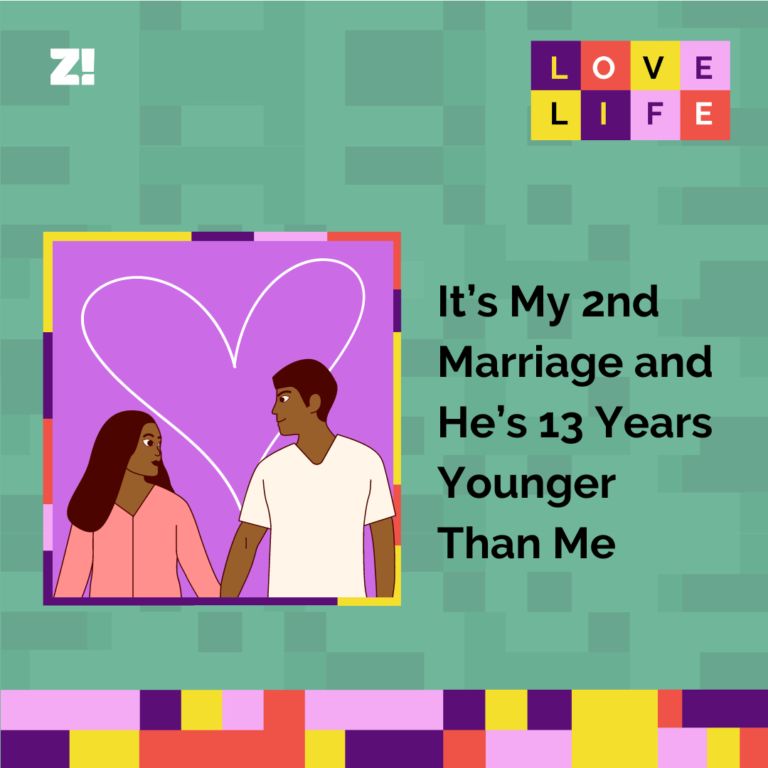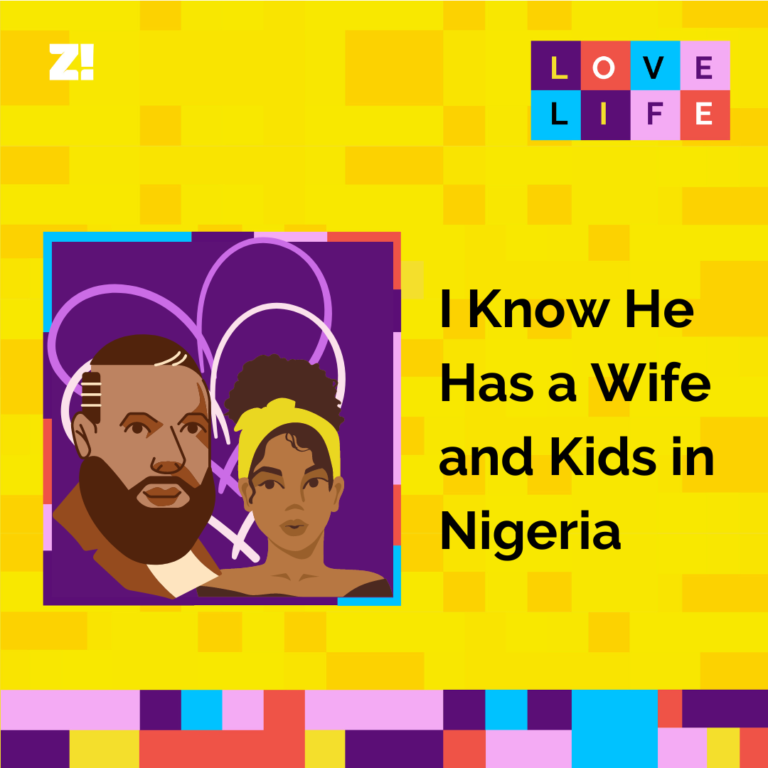Love Life is a Zikoko weekly series about love, relationships, situationships, entanglements and everything in between.

How did you two meet?
Hajara: Usman and I first crossed paths during my university days in 2011.
I was pursuing my degree in economics at the University of Abuja, and he was stationed at the Nnamdi Azikiwe Airport as an officer in the Nigerian Air Force (NAF) Base. Our first encounter was at a charity event the Air Force was hosting on campus.
Usman: I remember that day vividly.
I was struck by Hajara’s warmth and dedication to the cause — medical missions to remote and under-served areas. She gave a speech on behalf of the students, and I just sat and watched with awe. Towards the end of the function, I asked another student I knew to introduce us.
I found myself captivated by her intelligence and compassion.
Hajara: After that meeting, we began to see each other frequently as I started volunteering for some of NAF’s outreach programs. The first one I volunteered for was to a village in Kwali. Usman was overseeing logistics, and I was part of the team providing medical assistance.
Working together in such a challenging environment brought us closer. I got to experience firsthand the impact the Air Force makes in people’s lives, and seeing Usman at the forefront of it made me admire him and his colleagues greatly.
When did you find out you liked each other?
Usman: She graduated in 2012 and served in the Air Force for her NYSC in 2013. During that time, I’d been transferred to Benin and back to Abuja in time to be with her at the NAF Base. I spent the time often checking in and spying on her. I even got close to her fellow corper and close friend then, just to feel close to her.
At the time, I’d been seeing someone else for close to five years, but because of the effect Hajara had on me, I realised the relationship had grown stagnant. On the other hand, I was impressed by Hajara’s dedication and the way she connected with the local community. She had the ability to put people at ease and make them feel comfortable.
Hajara: After I passed out of NYSC, we started dating. I don’t know how it happened. He never asked me directly. We just started seeing each other, taking care of each other and attending functions together. Then, we got to know each other’s parents, and things were going strong.
We were both in Abuja for over a year when Usman received orders for a deployment to Jos. It was strange that at the time, we’d never really discussed the fact that he could have missions anywhere in the world and have no choice but to go. His departure was a challenging time for us, but it made us realise how much we wanted to be together.
We had a heartfelt conversation about our future, and it was during that time apart that we decided to take the plunge and get married.
Usman: It was difficult being away from Hajara during my deployment, but it strengthened our bond and made us appreciate what we had even more. I proposed to her over Skype in 2015, and when I returned home some months later, we had an intimate nikkah ceremony with close family and friends.
If you want to share your own Love Life story, fill out this form.
What’s it like being married to an officer in the Nigerian Air Force?
Usman: Being an officer can be demanding at times.
I had just been promoted to squadron leader when we got married. There are deployments, long hours and the inherent risks associated with military service. However, Hajara has been my rock through it all. Her unwavering support and understanding make it easier for me to fulfill my duties. We’ve learnt to cherish the time we have together.
Hajara: The most rewarding aspect for me has been witnessing Usman’s dedication to serving our country. It’s a source of immense pride to see him in uniform. Because of him, I’m part of the close-knit army community that really rallies around you when you need them the most — the Nigerian Air Force Officers’ Wives Association (NAFOWA). The camaraderie is quite uplifting.
The government treats you well too, with perks like scholarships and affordable housing. Once in a while, you get front-row seats to the military air shows, which I always attend with my heart in my mouth when Usman is one of the pilots but is really beautiful to watch at other times.
There are trying times too, like when he’s gone for a long time.
Usman: The last time they deployed me to a different state, we relocated together to Enugu in 2018, but then, I got an assignment outside the state three months later.
Sounds like it was a particularly tough time for you two
Usman: It was a long and challenging mission in a distant region of the country.
Hajara: We expected the separation, but it didn’t make it any easier. It was a mission that required him to be in a remote area with limited communication for several months. The day he left, it was as if a piece of my heart went with him.
Usman: The night before I left, we had spent the entire evening together, just the two of us. Hajara had prepared my favourite meal of suya jollof rice and dan wake, and we talked about our dreams, our goals, our future, and all the little things. But there was an underlying sadness that weighed on both of us. We’d been married for three years and hadn’t had kids yet.
Hajara: It wasn’t like we weren’t trying. We’re still trying.
Usman: She was trying her best to be strong for me, but I could see the sadness in her eyes. We held each other that night, and I could feel the depth of our love and the pain of our impending separation. She didn’t follow me to the base, but as I entered the van, I looked back one last time to see Hajara waving goodbye, tears streaming down her face.
It was a sight that haunted me throughout the assignment.
How do you cope with the pain of separation?
Hajara: Coping in his absence was a daily struggle. I had to adjust to a new routine and take on additional responsibilities. But what made it hardest was not being able to hear his voice or see his face for weeks on end.
Usman: We communicated when we could, but it was infrequent, and we both understood that it was a part of the job. We even found a way to exchange handwritten letters and emails whenever possible, and phone calls became cherished moments.
Hearing her voice and knowing she was there for me gave me the motivation to carry on.
Hajara: I also drew strength from the support of friends and fellow military families who were going through similar experiences, especially the older women. They understood the unique challenges of military life and offered a shoulder to lean on. I also stayed busy with work and volunteering. Keeping myself occupied helped distract from the loneliness and sadness.
Usman: My other trips have been easier on us. We’re emotionally stronger now.
You mentioned trying to have children?
Usman: We leave it in God’s hands, but in the meantime, we have wards we’re responsible for. We take care of them in order to seek Allah’s mercy.
Hajara: I know his parents have mentioned him taking another wife, but he knows I never wanted to be part of a polygamous home like my parents. However, the whole thing makes me anxious and his travel assignments don’t make it easier. The last time he was on an extended trip to Mali, I had a stillbirth at seven months. I’ve had six miscarriages in total, before and after that. And right now, I’m just tired.
Usman: I’m content. If Allah doesn’t want us to have children then so be it. I won’t force it then sit back and watch as my wife’s body suffers. Thankfully, we’re not the only children of our own parents.
Have you had any major fights?
Usman: Not really. We cherish every moment we get to speak when I’m away, and when I return, we’re often just so happy to be with each other for as long as we get.
Hajara: We had a major quarrel when he wanted to take another mission five months after I had that stillbirth. I was in emotional distress and couldn’t understand why he would be willing to leave me in that state. At that moment, it felt like he married the force instead of me like he wanted to escape me.
Usman: After that quarrel, I didn’t go. I stayed back with her and begged for leave from assignments on the grounds of her condition. Thanks to the rapport I had with my commanding officer, NAF gave me a more stable role in Abuja for two years.
Nothing is more important to me than her and her well-being. Perhaps, I’ll look into transitioning to desk roles. They don’t pay as well as field, but the plan is to redirect our savings into my wife’s clothing business and branch out from there.
How would you rate your Love Life on a scale of 1 to 10?
Usman: 10
Hajara: 9
Check back every Thursday by 9 AM for new Love Life stories here. The stories will also be a part of the Ships newsletter, so sign up here.




